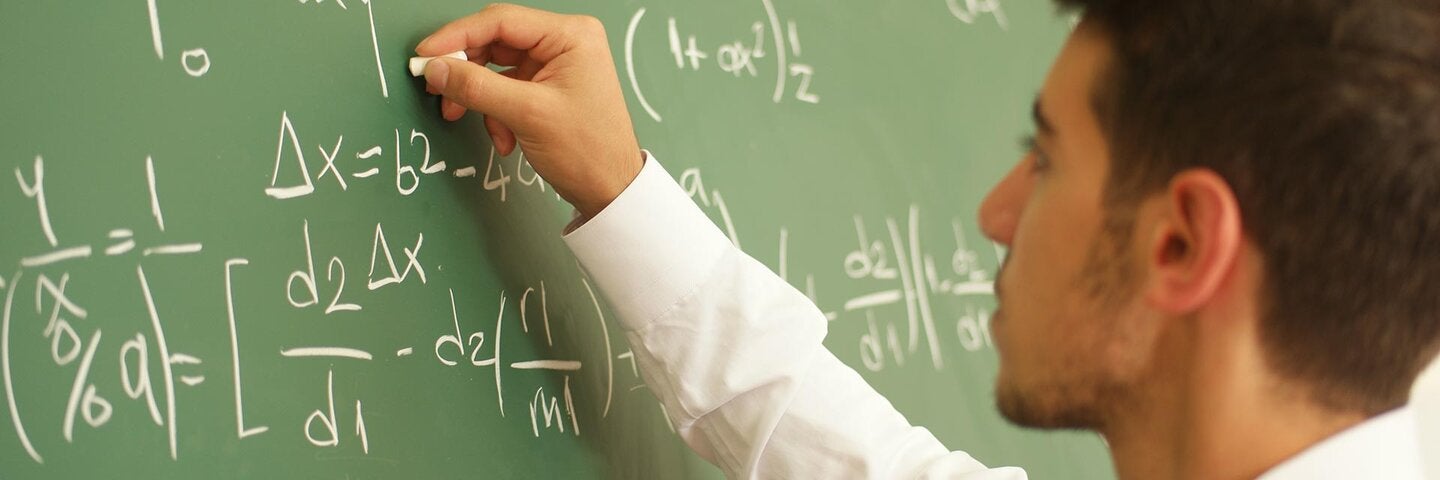Kalman Filtering: Theory and Applications

Kalman Filtering: Theory and Applications
This course is designed for practitioners who want to develop, streamline, or enhance their knowledge and experiences in Kalman filters. This course will be held virtually via Adobe Connect.
Get More Info
What you can learn.
The Kalman filter is probably the most successful and widely-used part of so-called “modern control theory”. It has been used as the central piece of the algorithm for many applications in aircraft/ship/ground vehicle navigation, spacecraft attitude determination, orbit determination, missile guidance and control, RF antenna/laser terminal target acquisition/tracking, RF/optical signal acquisition and tracking, seismic data processing, medical signal processing, and many other fields in the industry.
About This Course
This course is designed for practitioners, such as system engineers, system analysts, software engineers, hardware engineers, and project managers, as well as military operational personnel who want to develop, streamline, or enhance their knowledge and experiences in Kalman filters. Instruction provides a solid foundation for both the basic theory and practical application of Kalman filtering. Case studies illustrate the latter, including GPS navigation, integrated inertial navigation, precision navigation using GPS carrier-phase, spacecraft stellar-inertial attitude determination, precision clock, and radar/laser target tracking.
The course is unique in providing participants with a ready-to-use, step-by-step approach for employing Kalman filtering to their practical applications. The instructors have a combined 50 years of experience in Kalman filter design, analysis, tuning, implementation, validation, and verification. Instruction includes detailed discussions on the hardware and software architectures of Kalman filter-based systems, as well as system integration issues, such as time-tagging and precision time matching of sensor measurements, numerical stability, and divergence prevention. Computer lab sessions using MATLAB augment lectures to help participants develop insights through hands-on experience.
Using the knowledge and skills gained through this course, participants should be able to design Kalman filters for their specific fields; analyze the performance; develop the system, hardware, and software architecture; and resolve problems encountered in system integration, validation, and verification.
The texts, Applied Optimal Estimation, Arthur Gelb, editor (MIT Press, 1974) and Stochastic Models, Estimation, and Control, Volumes I-III, Peter S. Maybeck (Academic Press, 1984); lecture notes; and published papers are distributed on the first day of the course. The notes are for participants only and are not for sale.
Rongsheng (Ken) Li, PhD, Boeing Senior Technical Fellow, Boeing Integrated Defense Systems, El Segundo, California. Dr. Li has 25+ years of experience and is a recognized expert in the field of guidance, navigation, and control system design/analysis; software architecting/design/implementation; and system integration. He has been with Boeing for the last 17 years and was previously the system analysis department manager at BAE Control Systems. Dr. Li is the primary developer of several national high-precision spacecraft attitude determination systems as well as numerous integrated GPS/inertial navigation systems in the industry. He has 40+ issued U.S. patents and more patent applications pending related to guidance, navigation, and control. He has authored numerous technical papers and technical reports. Dr. Li has developed and taught several technical courses for multiple Boeing Southern California sites, including “Spacecraft Attitude Determination” and “Object-Oriented Real-Time GN&C Software Design in C++”; and this course, “System and Software Architecting,” “GPS Principles and Applications”, and “Spacecraft Attitude Control” for UCLA Extension.
Day 1
Reviews and Basic Kalman Filter Theory
Review of Probability and Random Process Theory
- Probability Theory
- Random Variables, Vectors, and Distributions
- Normal Distribution
- Moments
- Random Process
- White Noise
- Markov/Gaussian Markov Process
Review of Linear and Nonlinear Systems
- Discrete Time System
- Continuous Time System
- Observability/Controllability
- Stability
Basic Estimation Theory
- Bayesian Estimation Theory
- Least Square Estimate
- Minimum Variance Estimation
- Batch vs. Recursive Estimation Algorithms
Kalman Filter: Architecture and Algorithm
- Basic Kalman Filter: Architecture and Algorithm
- Intuitive Interpretation and Understanding
- Extended Kalman Filter: Architecture and Algorithm
- Generic Recursive Estimator Architecture
- Fixed Gain Estimator
Case Study 1: Kalman Filters for Precision Clock
- Clock Model
- Simple First-Order Filter
- Second-Order Filter
- Third-Order Filter
Computer Lab Session 1: Design and Analysis of Kalman Filter for Precision Clock
Day 2
More Kalman Filter Theory and Practical Application Considerations
Kalman Filters: Derivation
- Orthogonality Approach
- Innovation Approach
Kaman-Bucy Filter
- From Discrete to Continuous
- Steady-State Filter
Numerical Stability and Alternative Forms
- Li/Wu Approach
- Alternative Forms of Kalman Filter Equations
- UDU Factorization
Application Approach: General Guidelines
- Stability Process Model
- Establishing a Measurement Model
- Evaluate Model Uncertainty
- Evaluate Process Noise
- Time-Matching
- Divergence and Working with White Noise Assumption
- Numerical Stability
Case Study 2: GPS Navigation
- GPS Fundamentals
- GPS Measurements and Errors
- Memory-Less Estimates vs. Kalman Filtering
Computer Lab Session 2: Develop an Estimator for 2D GPS (I)
Day 3
More Applications and Case Studies
Case Study 3: Spacecraft Stellar/Inertial Attitude Determination (SIAD)
- Architecture
- Attitude Propagation Approach
- Attitude Propagation Error Model
- Star-Tracker and Error Model
- Kalman Filter Design for Attitude Determination
- Example: GOES SIAD Design
Case Study 4: Radar/Laser Tracking
- Radar and Laser LOS Tracking Problem
- Math Model
- Kalman Filter Design
Computer Lab Session 3: Radar Tracking
Case Study 5: Integrated Strap-Down Inertial Navigation
- Gyros and Error Models
- Accelerometers and Error Models
- Strapdown Inertial Navigation Equations
- Inertial Navigation Error Model
- Aiding Sensors
- GPS/Inertial Integration: Overview
- Time-Matching and Lever-Arm Compensation
Case Study 6: Precision Navigation Using GPS Carrier-Phase
- GPS Carrier-Phase Measurements
- GPS Carrier-Phase-Based Precision Navigation
- GPS Carrier-Phase-Based Attitude Determination
Day 4
Hands-On Sessions
Computer Lab Session 4: Kalman Filter Development
Computer Lab Session 5: Kalman Filter Development

